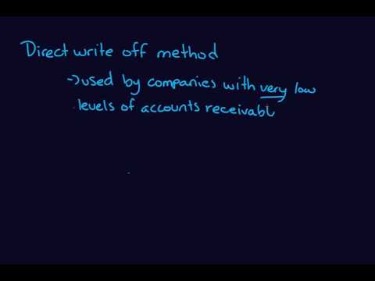
This method accurately matches income with the cost of goods sold, giving a clearer financial picture. On the other hand, accrual accounting is more like managing your finances with a budgeting app. And you’ll need one central place to add up all your income and expenses (you’ll need this info to file your taxes). For example, a company might have sales in the current quarter that wouldn’t be recorded under the cash method. An investor might think the company is unprofitable when, in reality, the company is doing well. At Business.org, our research is meant to offer general product and service recommendations.
- Cash basis accounting is typically considered less accurate than the accrual basis accounting method since it only records transactions that have been processed.
- Cash basis accounting focuses on simplicity and is commonly used by small businesses and sole proprietors.
- Because instead of hyper-focusing on the exact time a transaction occurred, it focuses on what you earned and what you owed in a given period.
- For example, under the cash basis method, retailers would look extremely profitable in Q4 as consumers buy for the holiday season.
Accrual Accounting vs. Cash Basis Accounting: An Overview
However, under accrual accounting, the income would be recognized in December, as constructing the effective tax rate reconciliation and income tax provision disclosure the services were provided during that period, and the payment is owed. Cash basis accounting and accrual basis accounting are two fundamental methods used by businesses to record financial transactions. Each method has its distinct advantages and disadvantages, making them suitable for different types of businesses with varying sizes and industries. Understanding these methods is crucial for business owners and accountants to make informed decisions when it comes to financial management and reporting. The main difference is timing Cash accounting records transactions when cash changes hands, while accrual accounting records revenue and expenses when earned or incurred, regardless of payment.
Cash Basis vs. Accrual Basis: What’s the Difference?
The US government uses a set of generally accepted accounting principles, or GAAP, to regulate how certain companies file financial documents. Per the IRS, you can’t use cash-basis accounting if you manage inventory, make over $5 million a year, or are publicly traded on the stock exchange. It provides a more comprehensive view of your financial health, capturing revenues and expenses as they occur rather than when cash changes hands. Accrual accounting records revenue and expenses when they are earned or incurred, regardless of when cash is exchanged. The payroll of a business involves an Accrued Payroll account, a type of accrued expense. All money earned by employees shows up in that account, which is a liability on the balance sheet.
Prefer watching? Explore Cash Basis VS Accrual Accounting in under 1 minute (Youtube video)
Most agricultural businesses use cash accounting to balance out volatility in the agricultural markets and manage operations consistent with cash flow. If farmers have to switch to accrual accounting, it would penalize them in an industry with high price volatility, rising production costs, and thin margins. Many small businesses opt to use the cash basis of accounting because it is simple to maintain. It’s easy to determine when a transaction has occurred (the money is in the bank or out of the bank) and there is no need to track receivables or payables. We’ll explore the key differences between cash and accrual accounting, who can use each method, and their implications for taxes. We’ll also look at the advantages and disadvantages of each so you can find the right method for your small business needs.
They can also maintain the records accurately using the chosen accounting method, ensuring smooth financial reporting. The main difference between cash basis accounting and accrual basis accounting is when revenues and expenses are recognized. While this may not seem like a major difference, the example shows how different these two methods can be, and how they can affect your business. That’s because unlike cash basis accounting, accrual accounting recognizes both revenue and expenses when earned, not when received or paid. The two differ in the timing of when revenue and expenses are reflected in your accounts. Cash accounting recognizes expenses and revenue when the funds change hands, while accrual accounting recognizes them when they how to sell preferred stock are incurred.
The hybrid method can be complex, so only use it if it is required or if you have some accounting skills. If you aren’t skilled in accounting, speak with a CPA for assistance and read IRS Publication 538. Before 2017, small-business taxpayers with average annual gross receipts of $5 million or less in the preceding three-year period could use the cash method. The enactment of the Tax Cuts and Jobs Act (TCJA), however, made it possible for more small businesses to use the cash method. The TCJA allows small business taxpayers with average annual gross receipts of $25 million or less in the prior three-year period to use the cash method of accounting.
This method is often preferred by small businesses because it is easy to understand and provides a clear picture of the funds available in the bank account. However, this method may not accurately represent the overall financial situation, as it doesn’t take into account unpaid invoices or expenses. In accrual basis accounting, the income is taxable when it’s earned, and expenses are deductible when they’re incurred. This method records financial transactions when obligations are made, regardless of when the cash changes hands, providing a comprehensive view of a business’s financial health. Both cash and accrual accounting methods have their unique tax implications, particularly in the areas of income, expenses, and tax liabilities. IRS regulations require businesses to select a consistent accounting method for reporting income and expenses.
Should a small business use cash or accrual accounting?

Corporations (aside from S corporations), partnership corporations, and tax shelters are also required to use accrual accounting, as are any companies that carry inventory. Under cash basis accounting, Company A would record an income of $1,000 on April 10th when the lawnmowers are delivered and Company B pays their bill. Even though the order was placed in March, the money was deposited into the company’s bank account in April, so it’s recorded as an April transaction. Accrual accounting is an accounting method that records income and expenses at the time of the transaction, regardless of when the payment actually takes place. This means that even if money is not withdrawn or deposited immediately, the transaction is still recorded on the company’s books.
A company might look profitable in the long term but actually have a challenging, major cash shortage in the short term. Keeping a real-time total of income and expenses also makes it easier to flag unpaid transactions so you can follow up with your customers. Doesn’t track cash flow and as a result, might not account for a company with a major cash shortage in the short term, despite looking profitable in the long term.
As small businesses grow and their operations become more complex, they may need to adapt their accounting practices to better manage their finances. Different industries and changes in revenue stream can require a shift from cash to accrual accounting in order to gain a more accurate picture of the company’s financial health. Cash and accrual accounting are accounting methods appropriate for different companies, industries, and situations. Under cash basis accounting, revenue is reported on the income invoice template for sole traders statement only when cash is received.





